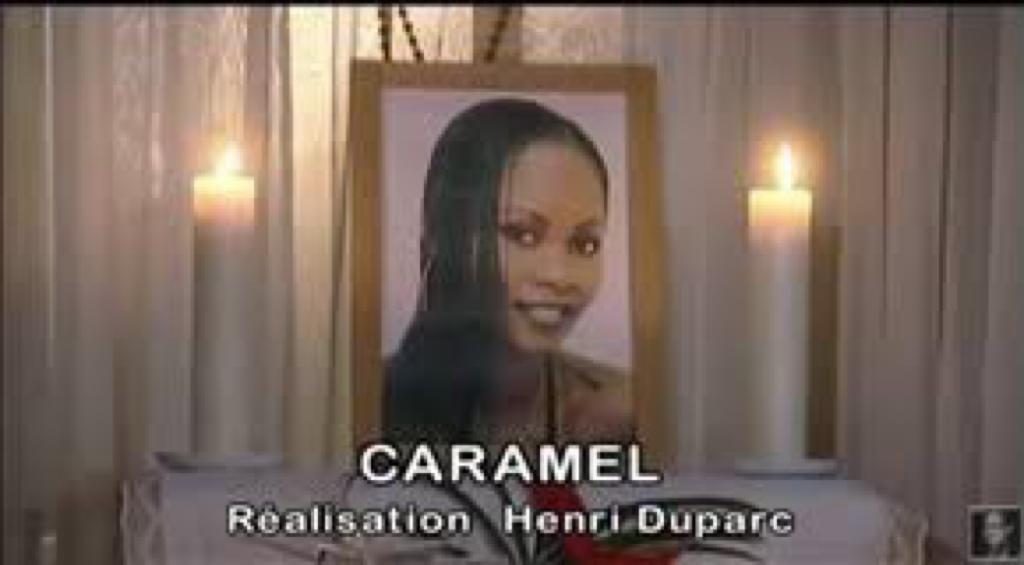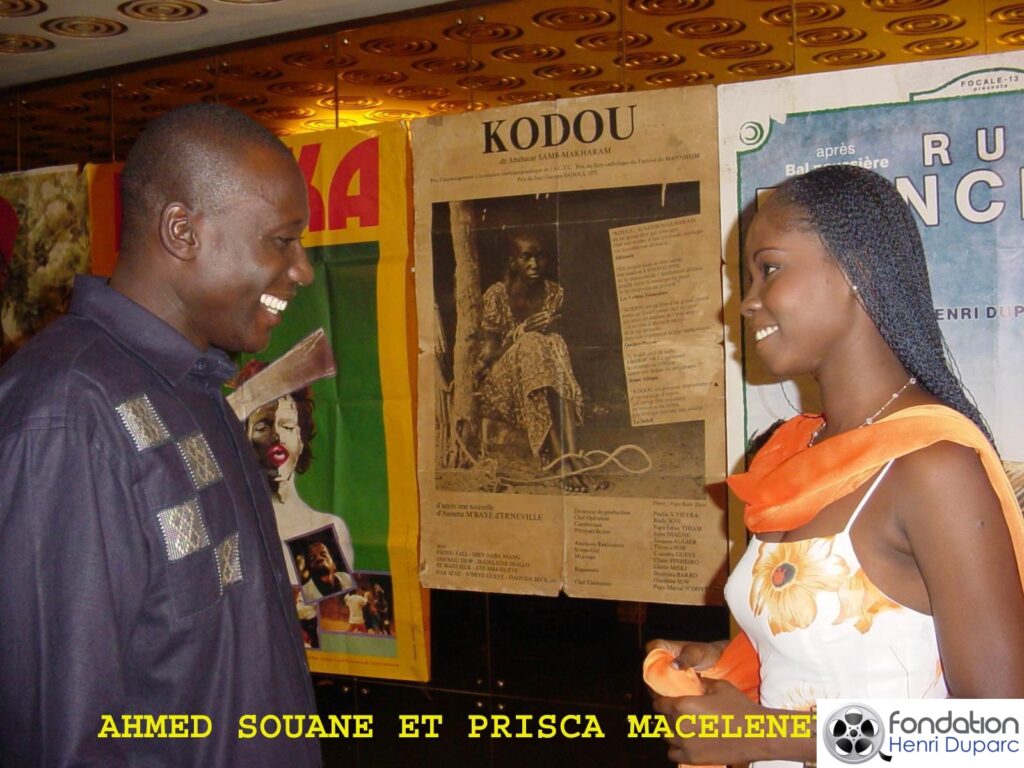Known to the general public as the “film-testament” of Ivorian-Guinean filmmaker Henri Duparc (1941-2006), Caramel is inspired by the African legend of Mami Wata. Screened in several international festivals, it depicts an Ivorian society at the turn of the 2000s. Between traditions and respect for the elders, what can we say today?
understand the movie
Mr. Henri Duparc is, among other things, the director of films such as Abusuan (1972), Rue princesse (1993) or Bal Poussière (1989), in which great Ivorian actors such as Bakary Bamba, Hanny Tchelley-Etibou, Thérèse Taba or again Akissa Delta.
The latter, a famous Ivorian actress and producer, director of the hit series Ma famille, plays the role of Tatiana in the film Caramel. But who is Tatiana? Tatiana, a single mother of 2 children, is Fred’s tow truck, single and manager of a movie theater.
You don’t know what a tow truck is? No problem. A tow truck is the very one that serves to satisfy a man’s stomach and lower abdomen, without there being a label on their relationship.

“A tow truck is the very one that serves to satisfy a man’s stomach and lower abdomen without there being any label on their relationship”
This situation saddens the heart of Maria, Fred’s older sister, worried that he might not be able to carry on their father’s surname. She therefore manages to put in her way suitors who, according to her, would suit her as well as him. But without success, these women, although very enterprising, find no interest in the eyes of Fred. Everything therefore suggests that Fred is too hardened in his celibacy to open his heart, until the day he meets Caramel.
Caramel is a young woman about whom little is revealed, except that she is 25 years old and works in the restaurant business.
African cinema for Africans: the materialization of this “dogma” in the film Caramel
Having spent half of my childhood in Ivory Coast, I remember that every Sunday, the hit series my family mentioned above was broadcast. It related the daily life of Ivorian families between friendships, notorious infidelities of men, rivalries and hidden polygamy.
We also had series like “must not be angry” or “who does that”, two television series that used satire to denounce social facts such as tribalism, corruption or even witchcraft. Later, we had the advent of series more dedicated to youth such as Class’A.

However, as far as feature films are concerned, I don’t remember in my time at least having seen any which had our identity or even our traditions and which could be intended to be exported internationally. When I speak of “traditions”, I don’t mean by that, a cinema that only speaks of mysticism with special effects like the Nollywood cinema of the early 2000s.
“I don’t remember seeing series or films exporting our traditions internationally. »
And that, Henri Duparc had already understood. In 1991, he said that “there was no question of making a cinema that is a simple copy of the American or European style. It was a question of creating a cinema having its originality, its identity, and which would be, as Freud could have said, “a de-traumatized cinema” of the visceral influence which wants the African to be the man of fetishism, of mysticism”. It is recalled that when the filmmaker began his career, he wanted to “show African cinema to Africans”.
Read also: Henri Duparc, the director who makes films for Africans
In Caramel, Henri Duparc will thus integrate a mystical story into a modern Ivorian cinema, which makes this film the very quintessence of Ivorian identity cinema.
Indeed, we find the daily life of a single thirty-year-old, middle class, living in the capital with an older sister who got it into her head that she had to find him a wife,

Even going to meet the one with whom he shares certain intimate moments for the sole purpose of putting an end to this story.
Maria, Fred’s sister, doesn’t miss church every Sunday. Like many Ivorians, religion occupies a central place in life, whether Christians or Muslims. The church we go there because we believe in God, but also to “fight evil spirits” or to obtain the protection that prayer would provide.
Despite the great success of the film, very few know that it is actually a modern and Ivorian version of the legend of Mami Wata.
I specify Ivorian, because this deity is also known in the Caribbean or in South America, especially in the Cuban santería where he is worshiped under the name of Yemaya or Yemanja.
Henri Duparc then decides to transpose the Ivorian urban legend and an African divinity in order to offer us a cinematographic masterpiece.
The myth of Mami Wata in the service of the film
The character of Fred, or the personification of the skeptical African
Unlike his big sister, Fred does not believe in the existence of these evil spirits. We can think that it would be a generational gap, however, his friends and colleagues are not of this opinion.

In such a way, that when reviewing a film telling the story of a man who meets a young woman who died a long time ago and who goes back to her world with him, Fred remains very skeptical about this scenario. and becomes at the limit mocking on what is for him only a history of village, which will not be sold.
This is even more telling, when we know the tragic end of the character of Fred and the great success that the film Caramel will receive.
In reality, Fred represents this African who calls himself modern without taking into account another “African reality” still rooted in our societies, and who thinks the African incapable of producing and exporting films specific to his identity.
Henri Duparc therefore succeeds and makes a village story a successful film. This success is also due to the use of the myth of the Mermaid.
Read also: The myth of Mami Wata
Indeed, the fact of a deceased person returning to our world is a story known in West Africa but not very common outside our African countries and which remains quite distinct from the myth represented by Mami Watta. In legend, when a deceased person returns to our world, it is customary for them to disappear once their secret has been revealed.
By juxtaposing these two legends, Henri Duparc breaks free from the cliché of canaries and marabouts and allows the film to be exported internationally and understood by all.
The signs
In Caramel, Fred, like the spectator, does not necessarily pay attention to the details announcing bad omens.
Indeed, during a banal conversation, Fred’s friends warn him about the myth of the Mermaid, who leaves with the man on whom she had set her sights. We speak in Africa of thwarted destinies. This is even the original title of the film: Caramel or thwarted destiny.
“Fred’s friends warn him about the myth of the Mermaid, who leaves with the man on whom she sets her sights. »
Fred’s strong attraction to Caramel is inexplicable: himself a selective man, who is nevertheless spoiled for choice, finds himself giving himself fully to a woman he barely knows, going on to go on three consecutive dates. .
One in the restaurant where Caramel works, where there is a small poster entitled “La Sirène”, the other in a fishing port. The choice of the director as to the place of this second appointment, just like this barely perceptible poster are not fortuitous. They herald the very inspiration of the film.
Against all expectations, the last meeting does not take place. Indeed, Caramel, will not honor this appointment and will no longer give any sign of life. Saddened, Fred decides to go to a funeral with one of his friends. This friend even mentions to Fred that it was the ideal place for him: it would actually be a place where one can easily flirt with grieving and bereaved women.

Once there, Fred is bored and jokes with his friend that nowhere does a photo of the deceased appear. Finally, he abandons his friend and goes to his cinema, as if to escape at the end of this evening not honored by the woman he coveted.
After having seen the film, one is tempted to wonder what would have happened, if Fred had had the opportunity to wait until the portrait of the deceased was placed.
The sequel to the omen
This will however be the case of her sister Maria, who when she saw Caramel for the first time, had a bad feeling, so that she had decided to go to the address that the young woman had given her.
Indeed, when he had finally gone to his cinema, after the evening of mourning, Caramel was waiting for him there. She told Fred that she hadn’t been able to honor their appointment and apologized for that.
The latter therefore decided to send her home so that she knew where he lived.
When Maria went to Caramel’s, the house was still bustling. She met Lancine, cousin of the young lady. He explained to her that it was impossible that the young woman she said she had seen that evening and who had left with her brother was Caramel.
Meanwhile, in the forecourt of the house, you could hear religious songs, when Maria saw past, the photo of a young lady who would have been forgotten. She had just realized that something supernatural was happening.
From Caramel, to the blows of life
What I particularly liked about the film is that from the height of his 18 years of age, he relates a reality that is still firmly rooted in Côte d’Ivoire. As proof, in the series of news The blows of life, by journalist and writer Anzata Ouattara, we find the testimonies of people who have experienced similar stories. These testimonials relating true stories were so successful that they are now adapted for television in the hit series of the same name.
We can therefore say that Mr. Duparc has succeeded, and that this “genre” has consciously or unconsciously influenced future generations of writers and filmmakers proud of their identity and their stories.
Read also: Anzata Ouattara, new icon of Ivorian literature
